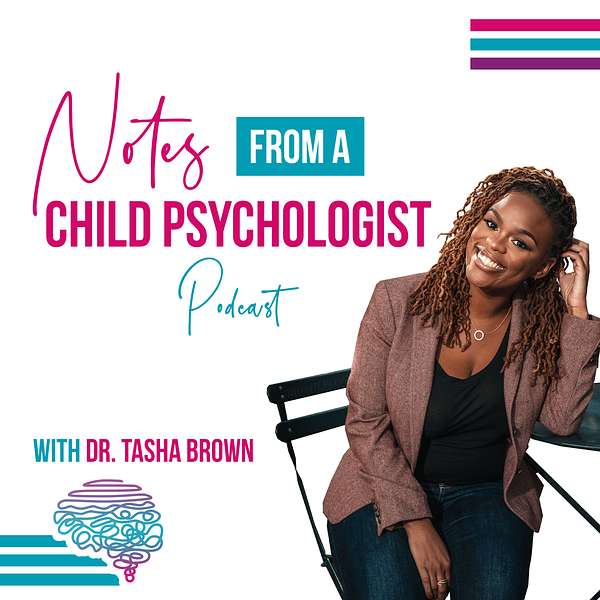
Notes from a Child Psychologist
Notes from a Child Psychologist
How to have conversations about race, racism, and social justice with your children
Welcome to the second installment of this 4-Part series:
In last week's episode, we discussed: How Knowing Their History Can Improve Your Child's Mental Health.
In this week's installment, I am sharing a framework that parents and caregivers can use to begin discussing race, racism, and social justice with children and adolescents.
In this intimate conversation, we cover the following:
- How adults prepare mentally and emotionally for these difficult conversations.
- The key to having developmentally appropriate conversations with your children about race, racism, and social justice.
- How families who do not identify as Black can advocate for social justice.
This episode aims to ensure that all children feel safe, seen, and heard.
Feature episodes in this series include:
- Why representation is crucial for your child's mental health
- The importance of breaking the stigma around mental health for Black Children and Adolescents
- [00:01:20] Upcoming episodes on race and mental health
- [00:03:10] The note of the week and the fantastic resources on PBS.org
- [00:06:35] Children listen to what you say, but what they really focus on is your behavior. Listen as I share tips that adults can use to check their personal biases and prepare to have meaningful dialogue.
- [00:07:21] Strategies to navigate and process your emotions before engaging with your child(ren).
- [00:09:31] Techniques for age-appropriate conversations and
- [00:11:51] Modeling authenticity and several conversation openers that you can use to initiate the discussion
- [00:13:44]The importance of validating your child's emotional response.
- [00:17:38] Why authenticity matters
- [00:18:19] How can non-black families talk about race, equal treatment, anti-racist behavior? Here I discuss the importance of teaching children about the complexities of people to promote equal treatment.
- [00:25:48] Using the resources provided in the show notes and ways that children and families can get involved
Resources:
Recommended Black History Month Reading List for Children:
Connect with Dr. Tasha Brown:
Website- https://www.drtashabrown.com/
Email Address- Dr.tashabrown7@gmail.com
Instagram- https://www.instagram.com/dr.tashabrown/
Facebook- https://www.facebook.com/dr.tashabrown7